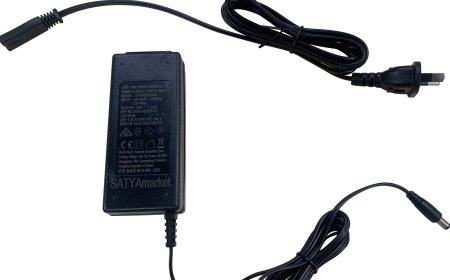Understanding Finance: Tools to Take Control of Your Future

Managing money is a part of life that everyone has to face at some point. Whether youre just starting your financial journey or looking to sharpen your skills, understanding finance is essential. Its not just about saving or investing its about having the right tools and strategies to make informed decisions that support your goals.
This guide breaks down core finance tools and habits that can help you take realistic control of your future. Well keep things simple, practical, and grounded in what really matters.
Why Financial Literacy Matters
Being financially literate means having the knowledge and skills to manage your money effectively. It doesnt mean you need to be a stock market expert. It simply means you understand how money works, how to make it work for you, and how to avoid common pitfalls.
Heres why financial literacy is so important:
-
Informed decision-making: From choosing a credit card to taking out a loan, financial decisions come with long-term consequences.
-
Avoiding debt traps: Many people fall into debt simply because they dont understand how interest rates or repayment schedules work.
-
Building stability: Financial literacy helps you build a safety net and weather unexpected life events, such as job loss or medical emergencies.
-
Reaching goals: Whether your goal is homeownership, early retirement, or starting a business, financial knowledge gives you the confidence to make it happen.
Core Financial Tools You Should Know
When we talk about financial tools, were not just referring to apps and calculators. Were talking about a mix of skills, systems, and digital resources that help you manage your money wisely.
1. Budgeting Tools
Budgeting is the foundation of financial control. It tells you where your money goes and helps you plan ahead.
Popular budgeting tools include:
-
Spreadsheets: Google Sheets and Excel are free, customizable, and easy to use for tracking income and expenses.
-
Apps: Tools like Mint, YNAB (You Need a Budget), and PocketGuard help automate the process.
-
Zero-based budgeting: A system where every dollar is assigned a job, ensuring you track every cent.
By budgeting regularly, you gain a clearer picture of your financial situation no guesswork involved.
2. Emergency Funds
Unexpected expenses are part of life. Having an emergency fund reduces the need to rely on credit cards or loans when the unexpected happens.
Tips for setting up an emergency fund:
-
Start with a small goal (e.g., ?10,000 or $500), and grow it over time.
-
Aim for 36 months worth of essential expenses.
-
Keep it in a separate, easily accessible savings account.
The goal is peace of mind, not perfection. Even a small emergency fund can be a game changer.
3. Debt Management Tools
Debt can be useful (like a student loan) or harmful (like high-interest credit card debt). The key is understanding what kind of debt you have and how to manage it.
Strategies include:
-
Debt snowball method: Focus on paying off the smallest debt first for quick wins.
-
Debt avalanche method: Prioritize high-interest debts to save money over time.
-
Debt consolidation: Combine multiple debts into one with a lower interest rate.
-
Credit counseling: Non-profit agencies can help you create a repayment plan if youre overwhelmed.
Stay on top of your repayment schedule and always know your interest rates.
4. Investment Platforms
Once your budget is under control and youve built some savings, investing is the next step. Investing allows your money to grow over time but it comes with risks.
Start simple:
-
Index funds and ETFs: Lower risk and fees than individual stocks.
-
Retirement accounts: In many countries, there are tax-advantaged accounts (like 401(k) or PPF) designed for retirement savings.
-
Investment apps: Platforms like Groww, Robinhood, or ET Money offer easy entry points.
Always research before investing and consider speaking with a financial advisor if youre unsure. Start small and build slowly. Even something like finding cheap vapes shows that making financially smart choices applies to all areas
How to Build Strong Financial Habits
The right tools are only half of the equation. Habits are what turn tools into long-term success.
Practice Regular Review
-
Set aside time once a week or month to review your budget and spending.
-
Look for trends or areas where you overspent.
-
Adjust your plan as your life changes.
Automate When Possible
-
Automate bill payments to avoid late fees.
-
Set up automatic transfers to your savings account.
-
Use reminders for due dates if automation isnt possible.
Learn Continuously
Finance isnt something you learn once. Stay updated with personal finance blogs, podcasts, or even YouTube channels. You dont need to become an expert, but being informed helps you avoid common mistakes.
Keep Goals Realistic
Whether youre saving for a car, a house, or retirement, make sure your goals are:
-
Specific: Know exactly what you're saving for.
-
Measurable: Know how much you need.
-
Time-bound: Set a clear timeline.
Break big goals into smaller milestones. It helps you stay motivated and track progress.
Where Finance Meets the Real World
Its easy to think of finance as numbers on a screen, but it affects every area of life from mental health to long-term security. The better your relationship with money, the more freedom and options you have.
Here are some simple reminders:
-
Track your spending: Its not about being restrictive; its about being aware.
-
Save before you spend: Pay yourself first by prioritizing savings.
-
Avoid lifestyle inflation: As your income increases, avoid increasing expenses unnecessarily.
-
Shop smart: Whether youre looking for clothes, electronics, or even at an online vape shop, always compare prices and look for deals.
These habits make a big difference over time. Being conscious with your money gives you more control and less stress.
Conclusion: Financial Control is a Journey
Theres no magic formula for financial success, but there is a path that works: understanding your money, using tools to manage it, and committing to long-term habits.
Heres a quick recap:
-
Learn the basics: budgeting, debt management, and emergency savings.
-
Use tools that match your style, whether its a spreadsheet or an app.
-
Set realistic goals and review your progress regularly.
-
Make financial decisions that align with your long-term goals not just short-term gratification.
You dont need to be perfect, and you dont need to know everything right away. Start with small changes, and keep going. Finance is not just about numbers its about building a future that supports the life you want.
Whether youre paying off student loans, saving for a trip, or just trying to keep your head above water, know this: You have the ability to take control of your financial future.





























